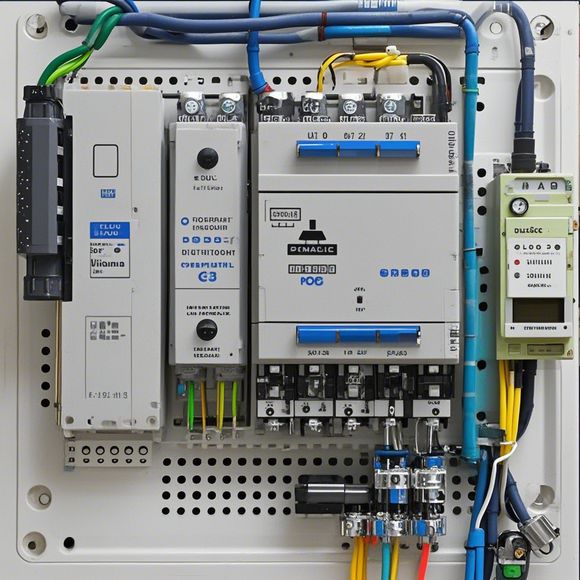PLC Controllers: The Backbone of Modern Manufacturing Automation
PLC控制器在现代制造自动化中扮演着核心角色。它们通过编程逻辑,实现了对生产过程的精确控制,提高了生产效率和产品质量。PLC控制器具有高度的灵活性和可扩展性,可以根据不同的生产需求进行定制和调整。PLC控制器还具备良好的人机交互界面,使得操作人员能够轻松地监控和管理生产过程。PLC控制器是现代制造自动化不可或缺的一部分,它为制造业的智能化、高效化发展提供了有力支持。
In the realm of industrial automation, PLC (Programmable Logic Controller) controllers are the backbone of modern manufacturing systems. These versatile devices are designed to control and monitor complex processes with precision and efficiency, making them a crucial component in any factory floor.

At the heart of a PLC controller lies a microprocessor or microcontroller unit, which serves as the brain of the system. This tiny chip is capable of processing vast amounts of data quickly and accurately, enabling it to respond to changing conditions in real-time. With its advanced algorithms and programming capabilities, the PLC can perform tasks such as monitoring production lines, controlling machinery, and automating workflows.
One of the key features of PLC controllers is their modular design. This means that they can be easily expanded or modified to suit specific needs, without having to replace the entire system. For example, if a new piece of equipment is introduced to the factory, the PLC can be configured to control it directly, without having to modify the existing software.
Another advantage of PLC controllers is their reliability. They are designed to withstand harsh environments and operate for long periods without fail. This makes them ideal for applications where continuous operation is essential, such as in manufacturing plants or power stations.
However, one of the challenges of using PLC controllers is programming. While they come with a range of pre-programmed functions, many users find that customizing the system to meet their specific needs requires significant technical expertise. However, with the help of dedicated software and tools, even novice users can create complex programs that optimize production processes and minimize downtime.

Another important aspect of PLC controllers is their integration with other industrial systems. By connecting to sensors, actuators, and other devices, PLC controllers can provide real-time feedback on process performance and make informed decisions about how to adjust operations accordingly. This level of interconnectivity enables companies to streamline their production lines and improve overall efficiency.
In conclusion, PLC controllers are an essential part of the modern manufacturing landscape. With their advanced features, modular design, reliability, customization options, and integration capabilities, they have become the go-to solution for controlling complex processes in factories around the world. As technology continues to advance, we can expect to see even more sophisticated PLC controllers on the market, making it easier than ever for manufacturers to stay ahead of the competition and deliver high-quality products to customers worldwide.
Content expansion reading:
Articles related to the knowledge points of this article:
PLC Controller Wiring Guideline
PLC Controller for Manufacturing Automation
The cost of a PLC Controller: A Comprehensive Analysis
PLC Programming for Automation Control in the Manufacturing Industry
How to Use a PLC Controller for Your Business
The Role of Programmable Logic Controllers (PLCs) in Foreign Trade Operations